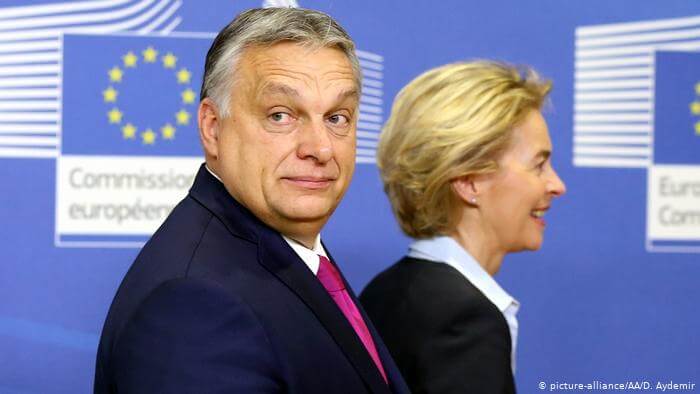On Thursday, the European Union (EU) Parliament agreed to a mechanism that requires member states to adhere to the European standard of democratic principles to secure access to its long-term budget. According to the agreement, the European Commission would first determine whether the member state has violated any fundamental democratic principles. Moreover, any action under the proposal will also require a “qualified majority” to be secured in the European Parliament.
The European Council said that this mechanism “allows to protect the EU budget where it is established that breaches of the principles of the rule of law in a member state affect or seriously risk affecting the sound financial management of the EU budget or the protection of the financial interests of the EU in a sufficiently direct way.” Further, according to the newly adopted proposal, member states in violation of these principles will also be subject to sanctions.
Finnish Member of European Parliament (MEP) Petri Sarvamaa hailed the agreement and said, “For the first time, we have established a mechanism that enables the EU to stop funding governments that disrespects our values such as the rule of law.” Moreover, representatives of Netherlands and Sweden argued that there is a need to secure rule of law guarantees as large sums of their taxpayer money was being utilised for regional development programs across the bloc. Even Manfred Weber, the leader of the centre-right European People’s Party, celebrated the deal as a “historic agreement for all Europeans.”
The proposal comes in light of widespread concerns amidst several European leaders regarding decisions taken by the right-wing populist governments in Poland and Hungary. For instance, Hungary’s Prime Minister, Viktor Orbán has been at odds with EU institutions since taking power in 2010, challenging them over allegations against his government’s economic policies, corruption, and his hard-line immigration stance. After the Council of Europe first sounded the alarm over Hungary’s new law on March 24, which granted Orbán powers to ‘rule by decree’ during the coronavirus pandemic, he told the EU that he does not hold unlimited powers, and that the parliament could withdraw the law at any time. However, given that his Fidesz party holds a two-thirds majority, such an outcome remains unlikely.
Further, Poland, too, attracted criticism from the bloc after withdrawing the immunity of Beata Morawiec, a judge who is a known critic of Justice Minister Zbigniew Ziobro. Consequently, expressing concern about the implication of this decision on the independence of the judiciary in Poland, the Court of Justice of the EU ruled that all cases against Morawiec should be suspended until the court rules on its legality. Moreover, the country has also been witnessing widespread protests against a recent proposal to impose a near-total ban on abortion.
While Hungary and Poland are yet to respond to the recent developments, ever since its introduction in the Parliament in 2018, the two countries’ leaders have often expressed their disdain over the proposal. Earlier this month, Hungarian Justice Minister Judit Varga said, “It is unacceptable that the European Parliament will not stop politically and ideologically blackmailing Hungary.” Moreover, Zdzislaw Krasnodebski, a Polish MEP, also expressed concern about the “ideological statements” promoted by the proposal and vowed to “do everything to prevent this mechanism.”
This is particularly relevant in light of the controversial €750 billion fund being negotiated for expediting post-pandemic recovery. Moreover, the recent proposal also endangers an agreement on a €1.8 trillion package that still awaits approval by several nationalist member states of the EU. Both Hungary and Poland have threated to veto the recovery package if it is linked to the rule of law conditions, which could severely hamper the expedited economic recovery that the proposal sought to achieve.
Also Read: COVID-19 vs Rule of Law: The Case of the European Union

